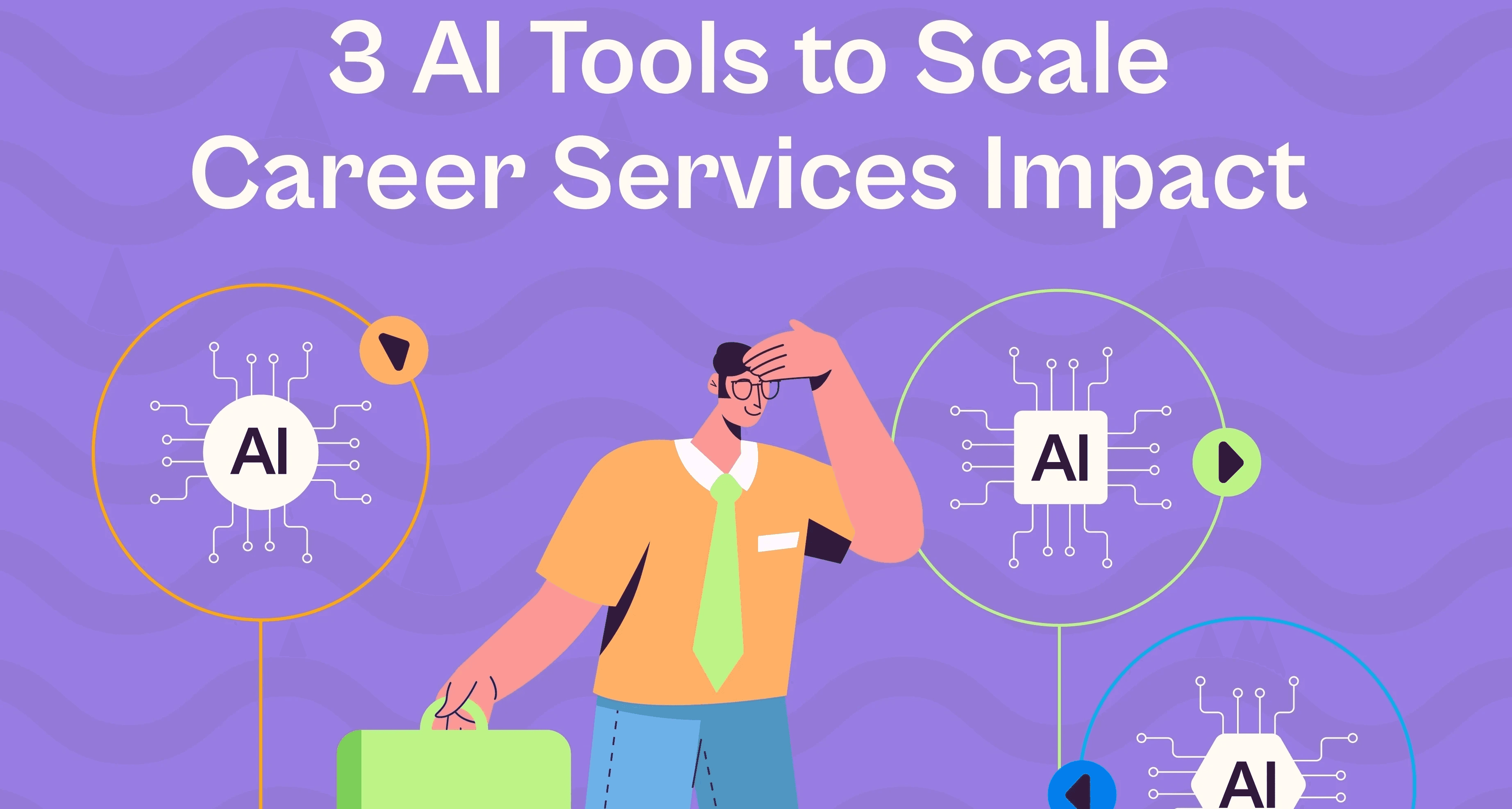HIRING
Written by:
Rod Danan
Published on:
November 17, 2023
Share this blog:
In an era where diversity drives success, a diverse talent pipeline become a necessity. Research by McKinsey & Company highlights this shift, revealing companies that hire diverse talent see 36% higher profitability and much higher levels of innovation.
But, what exactly is a diverse talent pipeline? And how do you create one?
In this Prentus guide, we’ll explain the importance of a diverse talent pipeline, and provide seven essential hiring strategies to help you craft one.
Let’s get started.
What is a diverse talent pipeline?
A diverse talent pipeline is a strategic approach to identifying, attracting, and hiring diverse talent. The goal is to make sure your company has a steady stream of talent from diverse backgrounds — including:
Gender
Race
Ethnicity
Age
Sexual orientation
Educational background
Cognitive abilities
Technical knowledge
Today’s corporate landscape showcases a visible shift towards diversity, with an understanding that it’s a win-win for both employees and employers. After all, statistics show diverse teams make better decisions 66% of the time.
To power support this shift, platforms like Prentus are connecting employers and recruiters with diverse talent networks.

Jobseekers come to Prentus from a range of diversity-focused bootcamps, non-profits, and programs. You can tap into this active user base to find the right people for your open positions — just sync your job listings and Prentus will automatically notify candidates that fit the bill.
You can even integrate your ATS and calendar tools for easy interview and event scheduling.
Benefits of hiring diverse talent
Prioritizing diversity in your hiring process is about more than just doing the right thing — there are all kinds of secondary benefits that go hand-in-hand with fostering a diverse, supportive work environment.
Here are a few of the most influential:
Attracts top talent : Organizations known for their diversity are seen as more progressive and more likely to attract a wider pool of candidates. Deloitte studies suggest that 80% of workers factor in inclusion efforts when choosing an employer.
Diversity boosts expertise : When you bring diverse backgrounds together, you foster collaboration. Forbes highlights that 85% of executives believe diversity amplifies innovation in the workplace.

Diverse teams are 70% more likely to capture new markets, via Equalture
Better decision-making and problem-solving : A mix of genders, races, and backgrounds contributes to superior decision-making and problem-solving. Diverse groups draw on their broad experiences, leading to well-rounded perspectives in tackling issues.
Expanding international reach : Aiming for global markets? A diverse team could be your gateway. Leveraging employees’ language skills and cultural insights is your first step into international business ventures.
How to build a diverse talent pipeline
1. Set diversity goals
Building a diverse talent pipeline begins with setting ambitious (but achievable) diversity goals. It’s about pinpointing where you want your organization to be in terms of inclusivity and representation, and mapping out the steps to get there.
Begin by assessing your current standing in diversity, equity, and inclusion. Then, establish time-sensitive targets to enhance areas that need it.
Consider adopting goals like:
Targeted recruitment quotas : Aim to identify or attract a certain number or percentage of candidates from an underrepresented group with each job posting.
Job description revamps : Commit to updating a certain number of job postings and employment resources to incorporate inclusive language.
Inclusivity education : Train a certain percentage of your team in diversity and inclusion awareness.
Leadership incentives : Tie a certain portion of executive compensation to achieving DEI benchmarks.
These goals should be tailored to fit your organization’s objectives, but they should always be specific, measurable, achievable, relevant, and time-bound (SMART). Pair every goal with at least one KPI and review them quarterly or bi-annually to track progress.
And when you’re ready to turn these goals into action, Prentus is here to help.

With Prentus, you can share your company events with thousands of active jobseekers and boost visibility among the best and brightest without the hassle of contacting disparate talent pools directly. Jobseekers are actively searching Prentus for positions that fit their interests and qualifications daily, so you can quickly identify, vet, and hire the right people for your organization.
2. Monitor your diversity hiring metrics
Data-driven hiring is effective hiring — and active monitoring is the best way to generate reliable data.
Take a look at who’s on your team right now. Calculate what percentage of your team identifies as part of a minority group, and use this number to identify priorities. In your hiring process, track metrics like applicant diversity, offer rates to diverse candidates, and retention.
Ask yourself:
Are we making progress toward diversity targets?
Which tactics are working well?
Where are our diverse candidates coming from?
Solid data collection can lead to powerful insights. For example, if you notice that your diverse applicants come from a certain job board, or have similar backgrounds, it can help you focus your efforts in the right direction.
3. Rewrite your job descriptions and employment resources
A job description is often a candidate’s first impression of your company culture. To make sure you’re attracting a diverse array of applicants, craft job descriptions that emphasize inclusivity so that job searchers know they’ll be welcomed.
Here are some tips for writing inclusively:
Check your language : Think carefully about the language you use to attract diverse candidates. Stick to non-gendered pronouns (e.g., “you”), avoid needless jargon, and limit words that certain groups identify with more than others (e.g., “competitive”, “rock star”, etc.). You can use grammar-checking tools like Grammarly to scan for offensive or outdated terms, but you should also have a human editor review the language for any mistakes.
State your commitment : Be explicit about your company’s dedication to diversity and equal opportunity from the get-go. Make it clear that you welcome candidates from all backgrounds.

Most employees believe their company should be doing more to increase diversity, per Glassdoor
Focus on must-haves : Keep your requirements tight by focusing on skills and experience that really matter. Long lists of “desired skills” can intimidate great candidates who might move on if they don’t tick every box.
Be open-minded about education : Not everyone has the opportunity to attend college and graduate school, but that doesn’t mean they can’t do the job. Think about swapping out educational requirements for aptitude tests and skill assessments.
Simplify your language : Focus on writing for clarity and readability. Use language that's welcoming and accessible, not overly formal or technical.
Not looking forward to manually publishing all of these edited docs?

Supercharge your reach with Prentus by syncing your job posts from LinkedIn and automatically notifying a diverse pool of jobseekers.
4. Design an interview process that minimizes bias
Research shows that 25.5% of hiring decisions are the result of “gut feelings”. That’s a problem — especially since 48% of HR managers admit that bias affects their hiring choices.
To ensure fairness and inclusivity, design an interview process that actively reduces bias:
Write SOPs : Your main goal is standardizing the process so that every candidate gets as close to an identical experience as possible. Write detailed SOPs for recruiters and hiring managers to follow, covering questions, timeframes, and interview structure.
Use structured interviews : Ask each candidate the same set of questions in the same order, so that no individual interviewer’s subjective opinion can influence the outcome. Structured interviews also help you compare different candidates objectively.
Use scorecards : Create a scorecard with questions for recruiters and hiring managers to fill out during the interview. This helps make sure that they don’t miss any key information, and can help you track applicants’ progress through your process.
Maintain diverse panels : Assemble interview panels with members from various backgrounds, departments, and levels within your company. A mix of employer perspectives provides a more balanced evaluation of candidates.
Implement blind interviews : Start with questionnaires that assess candidates’ skills without revealing their identities.
5. Recruit diverse talent through referrals
Leverage the networks of your current employees by encouraging them to recommend diverse candidates. This broadens your talent pool with individuals who come pre-vetted by your team, so they’re more likely to fit in with your company culture.
6. Create and advertise more flexible company policies
Develop company policies that cater to a wide array of lifestyles and cultures. From flexible working hours to remote work options and parental leave, design these policies to accommodate the diverse needs of a modern workforce.

Ethnically-diverse companies perform 35% better, via TopRecruitment
Highlight these policies in your job postings and careers pages to attract candidates who value (or require) this flexibility.
Best practices for building a diverse talent pipeline
Building a diverse talent pipeline is more than just hiring — it’s about creating a workplace that actively encourages diversity.
Use diversity-focused platforms : Prioritize job boards and platforms that have diverse talent pools. This approach can bring a wider range of candidates into your recruitment funnel (and organization). Prentus partners with a diverse range of bootcamps, coding academies, and non-profits to help students enter the workforce post-graduation. Employers can access this pool of potential candidates through the platform.

Support employee resource groups (ERGs) : Champion ERGs within your organization. These groups provide support for team members from diverse backgrounds by giving them places to chat, network, and grow with people who can relate to their experiences.

Actively reach out to diverse talent : Don’t wait for candidates to come to you. Take a proactive approach by tapping into referrals, joining professional networks, and attending networking events geared toward diversity.
Boost your branding : Showcase your company’s commitment to diversity and inclusion through your employer branding. Highlighting real stories and testimonials can resonate with potential applicants and encourage them to consider your organization.
Minimize unconscious bias : Implement training programs to help employees recognize and mitigate unconscious biases. This should be an ongoing effort to ensure a fair hiring process and a supportive work environment.
Broaden your talent search with diverse hiring
When you think about it, every step we take to build a diverse talent pipeline is really about making our workplaces as vibrant as the world outside. It’s about creating a space where everyone’s unique story is part of the bigger picture.
And that’s where Prentus comes in.
With Prentus, you can access a larger, more diverse pool of talent and create an inclusive hiring process. Sync your job listings directly with Prentus, automatically notify suitable candidates about openings and events, and integrate your ATS for easy interview scheduling.
Post a job for free and transform your workplace for the better!
Rod Danan is Founder & CEO of Prentus. He has built digital products before using software developers and learned what to look for in candidates. Feel free to email him at rod.danan@prentus.co with questions.





